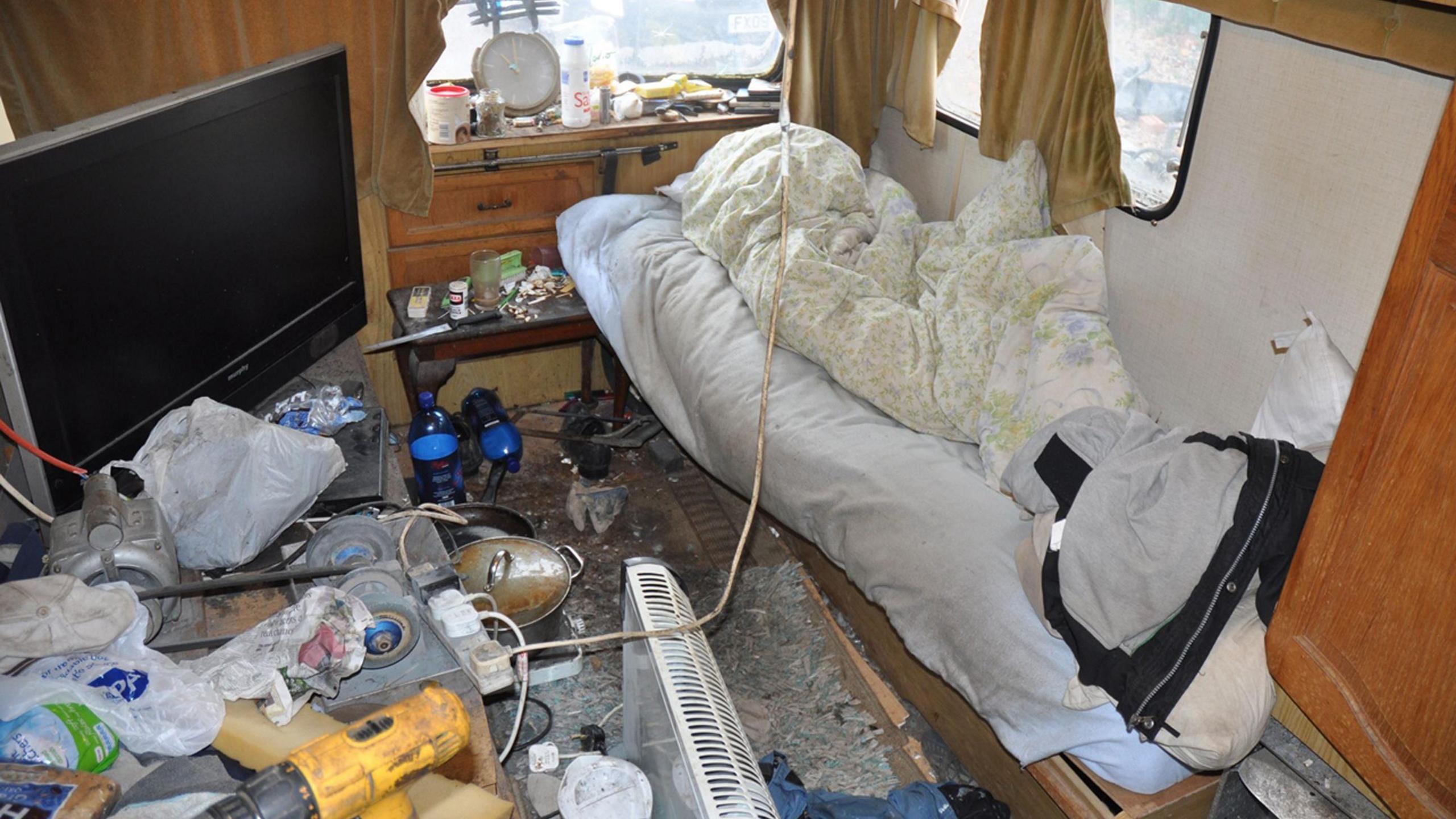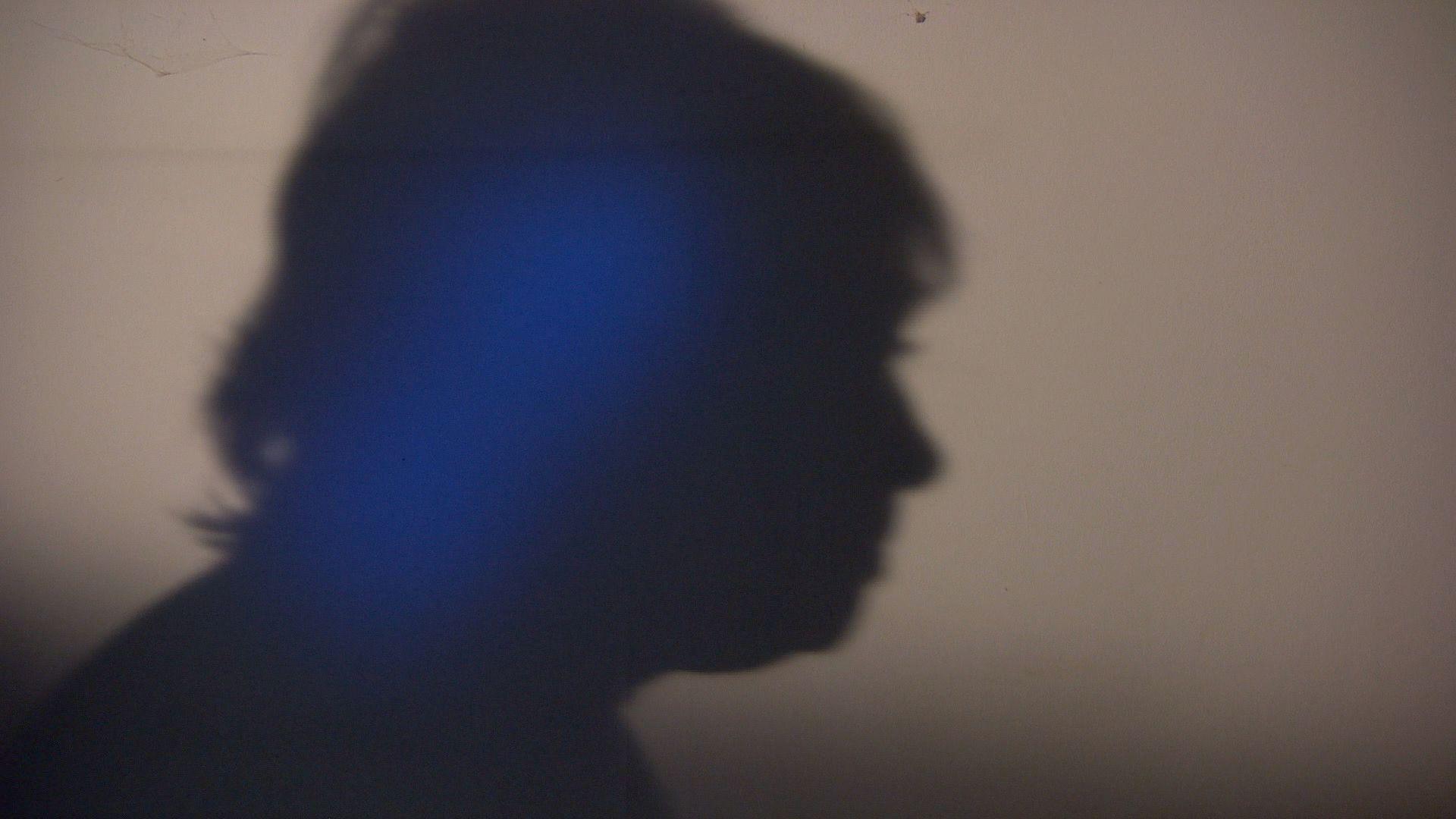Slavery victim wins payout as 'others die waiting'

Police said the vulnerable man was held captive in "truly shocking" conditions for decades
- Published
A vulnerable man kept as a slave for almost 26 years has won a “record payout” after his family sued the government for denying him adequate compensation.
The man, known only as Victim A, waited so long for compensation that his captors, who beat him, fed him on scraps and forced him to lay driveways for little or no pay, have been released from prison.
His sister said the £352,000 compensation payment would fund round-the-clock care for her “lovely brother”.
However, lawyers said the Criminal Injuries Compensation Authority (CICA) was “not fit for purpose” after other victims died before they could take similar action. CICA said over £165m was awarded to victims of crime in 2023/24.
Victim A, who was in his fifties, was kept in squalor by the Rooney family on a travellers’ site in Lincolnshire, while they lived a life of luxury.
The family violently exploited their victims who were often homeless people or men with learning disabilities, a 2017 trial at Nottingham Crown Court heard.
When 11 members of the family were convicted it was the biggest modern slavery case in British legal history.

The victim's sister told the BBC she was "incandescent with rage" that he had been forced to wait so long for compensation
The Rooneys had amassed a £4m fortune from their driveway business, according to a Proceeds of Crime hearing in 2019 at which they were ordered to pay back £1m, most of it to their victims.
However, Victim A’s sister, who at one stage during his captivity had presumed her brother was dead, said he never received “adequate compensation”, being awarded just £12,428 by the court.
Seven years since the trial, she has taken action to secure a payout from CICA, which is an agency of the Ministry of Justice.
Remaining anonymous to protect her brother’s identity, she said she was “incandescent with rage” that he had been forced to wait so long.
His wait meant he had been unable to fund rehabilitation for injuries inflicted by his captors.
She said she “only wishes the money could fix him, but it won’t”.
“What we got back was not the man that left us,” she added.
Like many victims of slavery, Victim A could not get Legal Aid to help him secure compensation.
Solicitor Liam Symonds, of the law firm Freshfields, who represented him on a pro bono basis, said he hoped the case “might be… a platform for other survivors to bring their own claims”.
Solicitor Jamila Duncan-Bosu, from the Anti-trafficking and Exploitation Unit - a charity which works exclusively with victims of modern day slavery and trafficking - believes this is a record payout by CICA to a victim.
She said: "He’s been treated appallingly and that sum of money reflects the level of injury that he suffered.
However, she said it was “absolutely unfair” that others had died before receiving compensation.
"There are many victims of trafficking who suffered equally serious treatment, who should equally be able to get awards of compensation.
“I’ve personally had four clients die whilst waiting for compensation from CICA.”
System 'broken'
Nine out of 10 victims of slavery are initially refused compensation, according to the charity’s research. It said CICA was “broken” and demanded it be reformed.
“CICA is not fit for purpose when it comes to victims of modern day slavery, despite it being incredibly common,” said Ms Duncan-Bosu.
“Compensation is paramount for victims of trafficking, for rehabilitation and to help them rebuild their lives, to stop that cycle of exploitation.
“It could be somebody who is working as a nanny or a housekeeper, it’s the people who are working in nail bars, in car washes, individuals who are working in forced labour on building sites.”
A government spokesperson said: “This was an awful crime and our thoughts remain with the affected individual and his family.
“CICA provides compensation to people who were injured as a result of a violent crime and has paid out over £165m to victims in 2023/24.
"We recognise that payment can never fully compensate for the injuries suffered but it can often help brave survivors move on with their lives.”
The compensation scheme does not make bespoke provision for victims of human trafficking and modern slavery.
Ms Duncan-Bosu said another problem faced by former slaves was that Legal Aid was not ordinarily available to help them apply for compensation.
“The Rooneys had access to advice and assistance [during their trial, as did the victim], she said. “The victim should also have had access to legal advice and assistance for his compensation matters.”
The BBC has contacted the Legal Aid Authority for comment.
Follow BBC Lincolnshire on Facebook, X (formerly Twitter), external, and Instagram. Send your story ideas to eastyorkslincs.news@bbc.co.uk, external